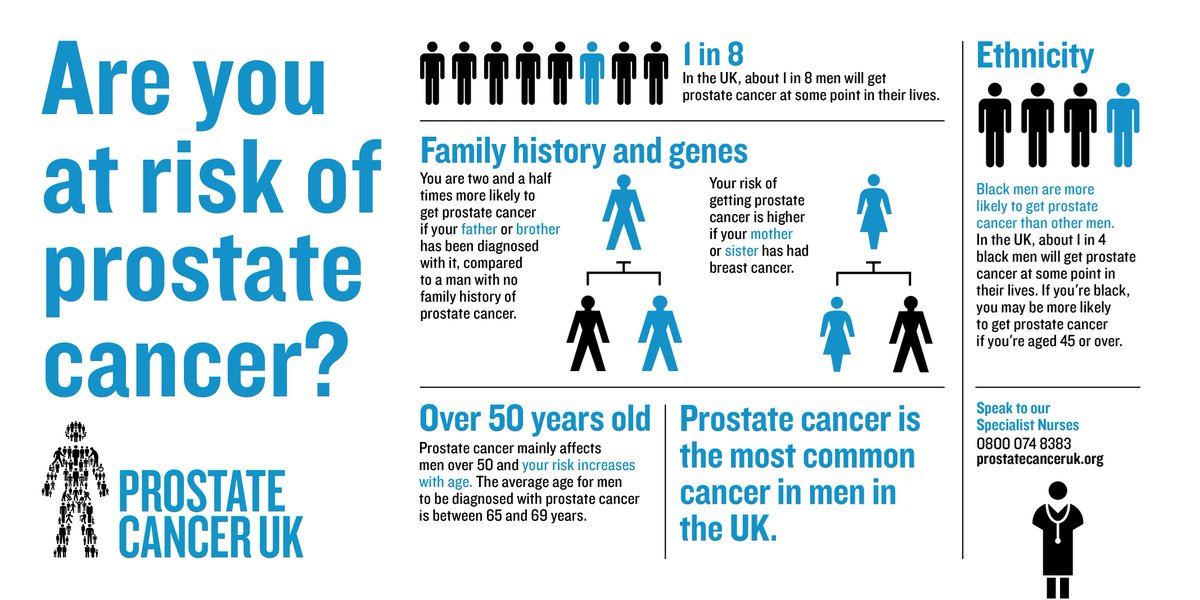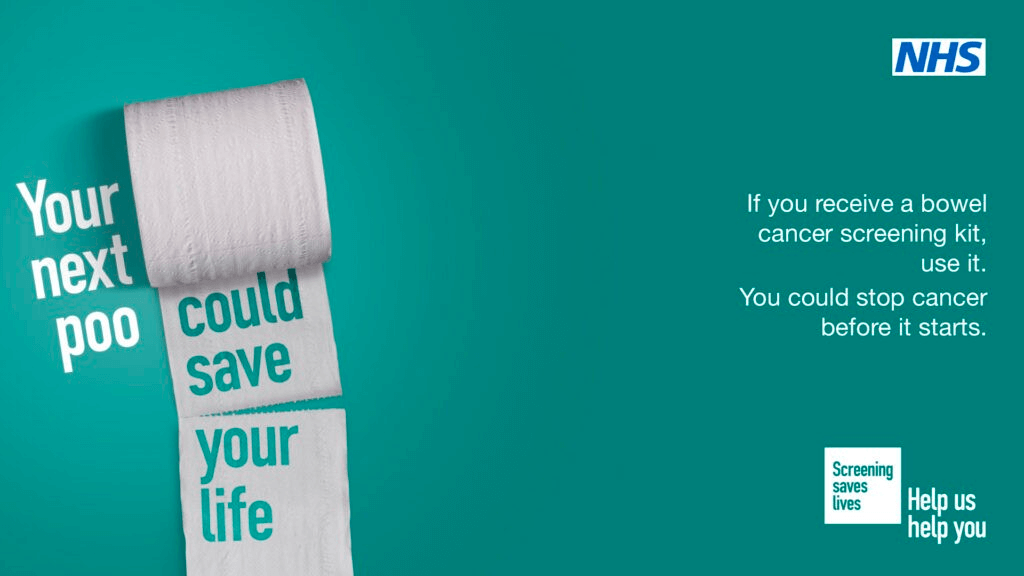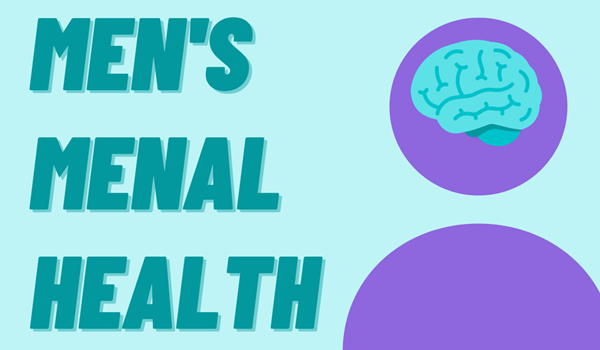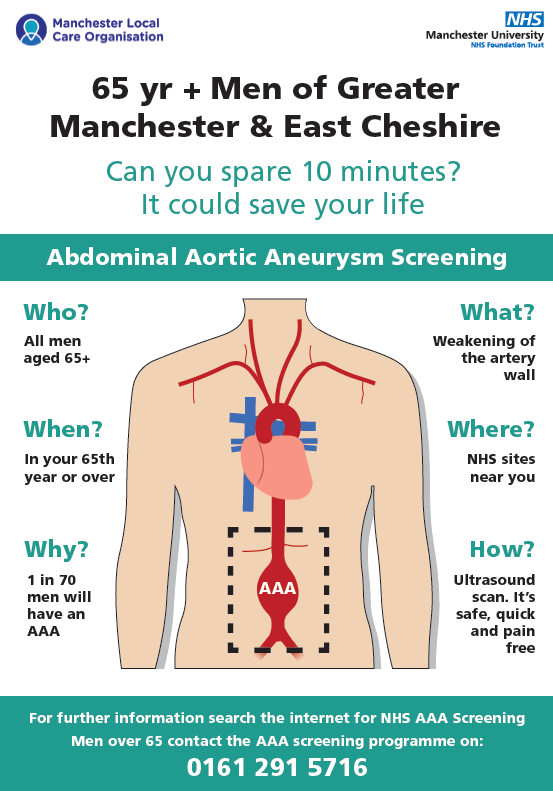Men's Health
Prostate Cancer
Prostate cancer usually develops slowly, so there may be no signs for many years.
What is the prostate?
The prostate is a small gland in the pelvis and is part of the male reproductive system.
About the size of a walnut, it's located between the penis and the bladder, and surrounds the urethra.
The main function of the prostate is to produce a thick white fluid that creates semen when mixed with the sperm produced by the testicles.
Symptoms of prostate cancer
Symptoms of prostate cancer do not usually appear until the prostate is large enough to affect the tube that carries urine from the bladder out of the penis (urethra).
When this happens, you may notice things like:
- an increased need to pee
- straining while you pee
- a feeling that your bladder has not fully emptied
These symptoms should not be ignored, but they do not mean you have prostate cancer.
It's more likely they're caused by something else, such as prostate enlargement.


Bowel Screening
NHS bowel cancer screening checks if you could have bowel cancer. It's available to everyone aged 60 to 74 years.
The programme is expanding to make it available to everyone aged 50 to 59 years. This is happening gradually over 4 years and started in April 2021.
You use a home test kit, called a faecal immunochemical test (FIT), to collect a small sample of poo and send it to a lab. This is checked for tiny amounts of blood.
Blood can be a sign of polyps or bowel cancer. Polyps are growths in the bowel. They are not cancer, but may turn into cancer over time.
If the test finds anything unusual, you might be asked to go to hospital to have further tests to confirm or rule out cancer.
Always see a GP if you have symptoms of bowel cancer at any age, even if you have recently completed a NHS bowel cancer screening test kit – do not wait to have a screening test.
For Further informaton please clickon the following link Bowel cancer screening - NHS (www.nhs.uk)
Taking care of your Mental Health
According to Mental Health Foundation, three times as many men than women die by suicide, with men aged 40 to 49 claiming the highest suicide rates in the UK. In recent years, we have seen awareness around the issue of male mental health grow, but while it is not the ‘taboo’ subject it once was, many men feel unable to talk openly about their own mental health or attempt to seek support. If you are struggling, you may find these tips useful.
- It’s ok to not be ok - recognising and admitting that you’re struggling is not a sign of weakness. The world has thankfully moved on from outdated concepts such as ‘manning up’ and ‘real men don’t cry’. Understanding that you’re not ok takes courage and is the first step to helping you on the road to recovery.
- Get active - exercise is an excellent way to boost your mood, even if it might be the last thing you feel like doing when you’re not in a great place mentally. A short 10 minute walk increases mental alertness and energy levels. Being active will keep your mind and body in a positive place.
- Talk to your GP or a health professional - they’ll be able to refer you to someone who specialises in mental health, such as a psychiatrist or psychologist.
- Make time for yourself - work and family life can often mean you end up forgoing time spent doing things you enjoy. Ensure you make time for you. After all, you can’t care for others if you can’t take care of yourself.
- Mental health and sleep are closely connected - having a good, regular sleep pattern can help you to feel less tired throughout the day and more able to cope with the tasks of daily life. Limit the amount of time spent using phones or tablets at night - your bedroom should be a haven for sleep.
- Reach out - talk to friends and family about how you are feeling. Be open and honest and avoid ‘bottling things up’. If you want to speak to other men experiencing similar mental health issues, charities such as Mind and ManHealth have directories of local mental health groups across the UK.


Sexual Health
Testing for sexually transmitted disease is done by the Sexual Health Hub Sexual Health & STI Clinics in and near Oldham | HCRG Care Group (thesexualhealthhub.co.uk) who can be contacted directly on 0300 303 8565 for advice, testing and contraception also.
The NHS UK website has a useful contraception guide too.
Looking after your General Wellbeing
It’s often said that women are generally better at taking care of themselves than men, but that shouldn’t be the case. At Royton & Crompton Family Practice we want everyone to lead a healthier, happier life, so here are some steps you can take to help you on that path.
- Don't smoke - stopping smoking is one of the kindest things you can do for your health. If you’re struggling to quit, the Stop Smoking section of our website has lots of helpful tips to empower you to stub out the cigs for good.
- Maintain a healthy weight – being overweight or obese can decrease fertility and puts you at risk of heart disease, stroke, type 2 diabetes and some cancers.
- Have regular check ups with your doctor - this will help spot any early signs of diseases such as cancer or heart disease. If you’re aged between 40 and 74, you are eligible for a free NHS Health Check which will look at your overall health and advise you if you're at a higher risk of certain health problems.
- Check yourself - it’s very important you check your testicles for any abnormalities at least once a month. If you feel any changes or notice anything unusual about your testicles, you should see a GP as soon as possible. Macmillan Cancer Support has a useful guide demonstrating how to check for testicular cancer.
- Take regular exercise - not only does it aid weight loss, it can reduce your risk of major illnesses and lower your risk of early death by up to 30%. It is also a fantastic mood booster.
- Everything in moderation - a combination of a well-balanced diet plus regular exercise is vital to good health, however it’s important to recognise that obsessive calorie counting or excessive exercise can lead to eating disorders, injuries, exhaustion and depression.
Page created: 28 June 2024
